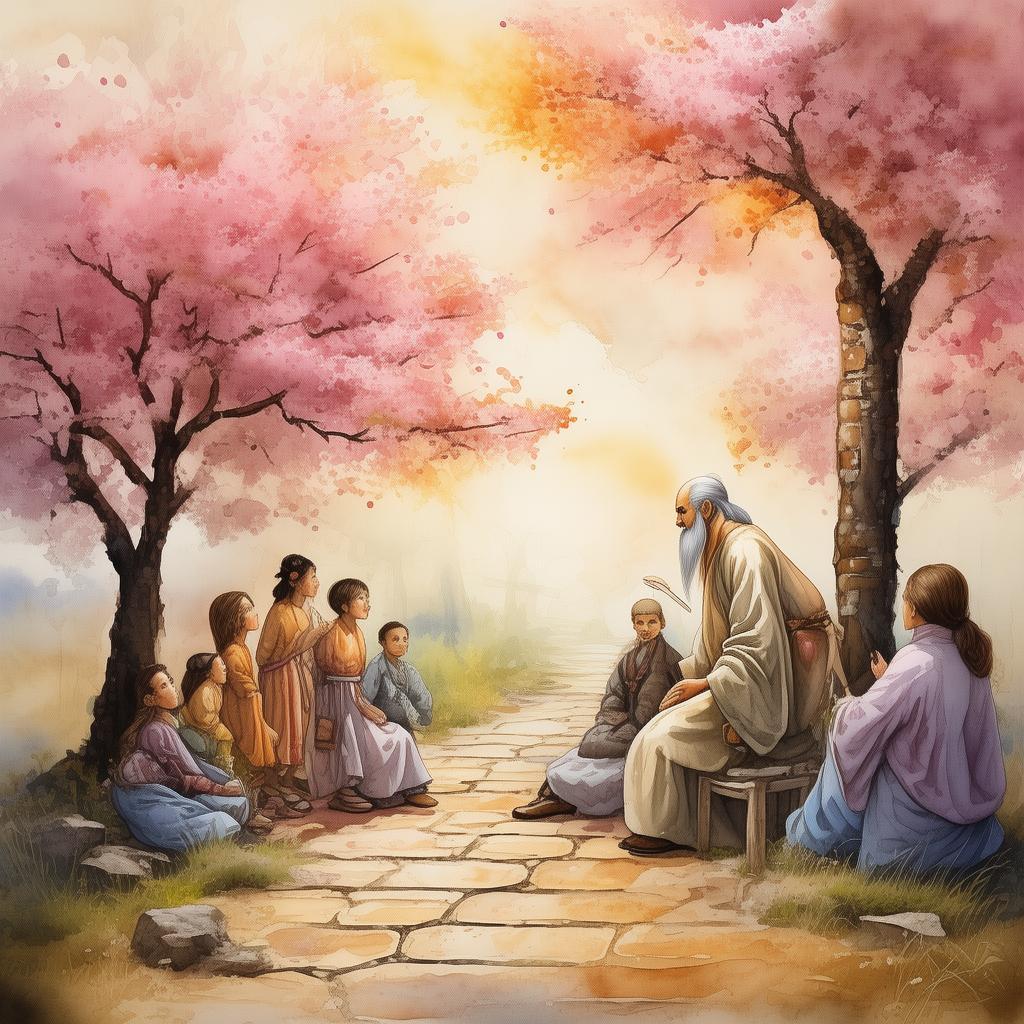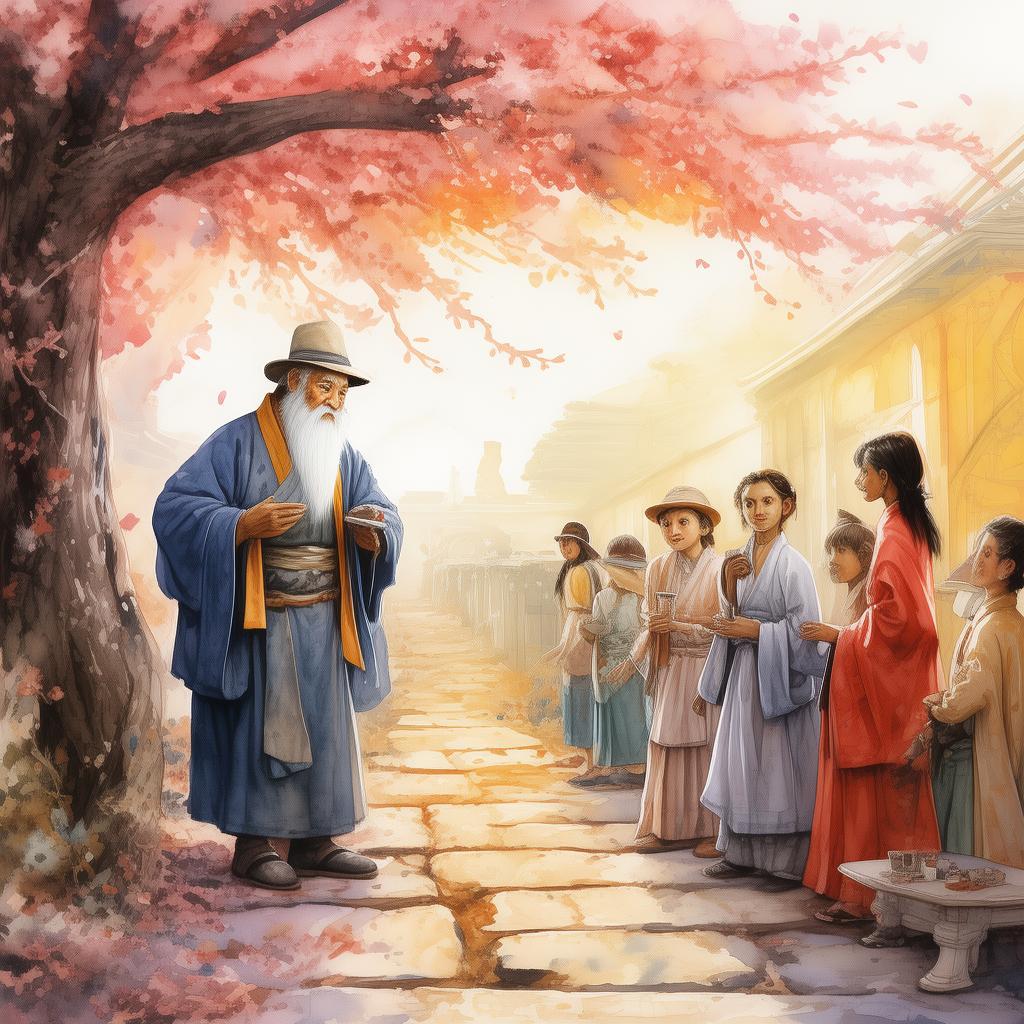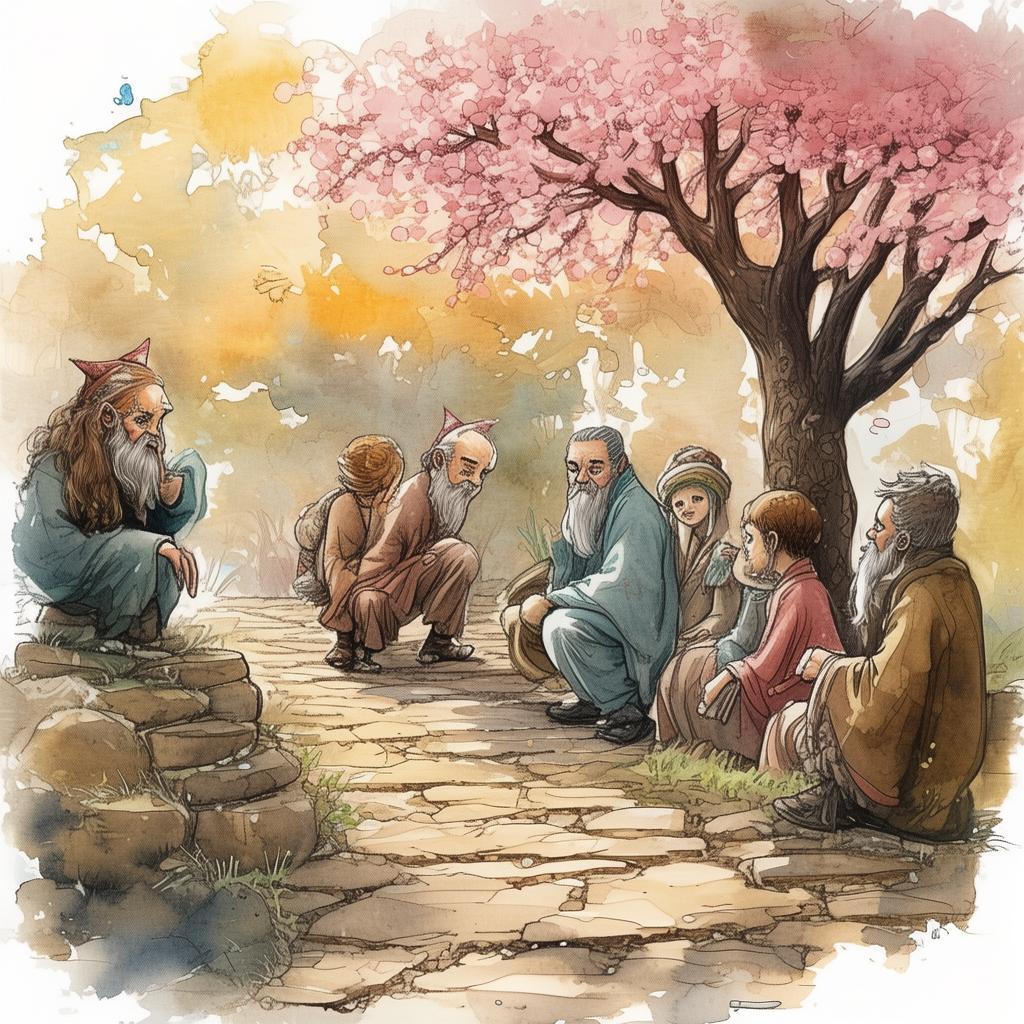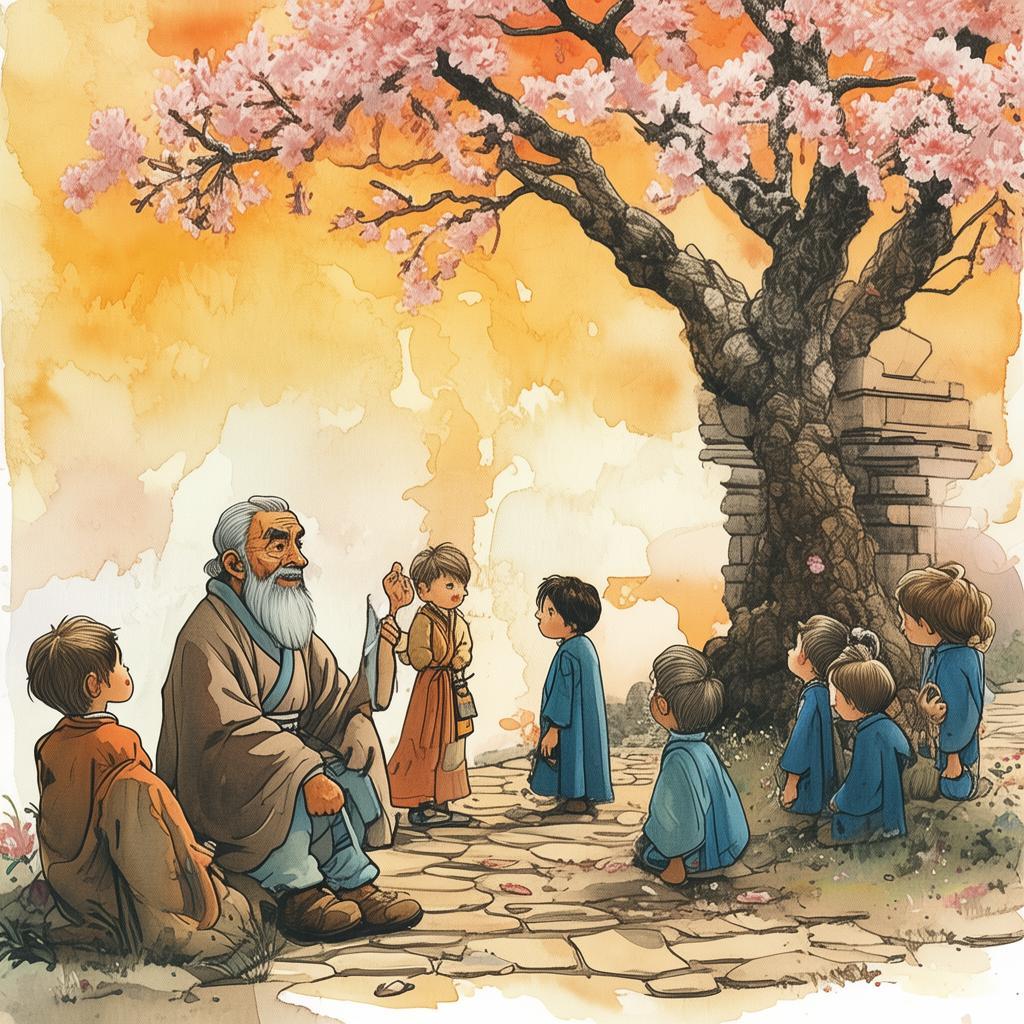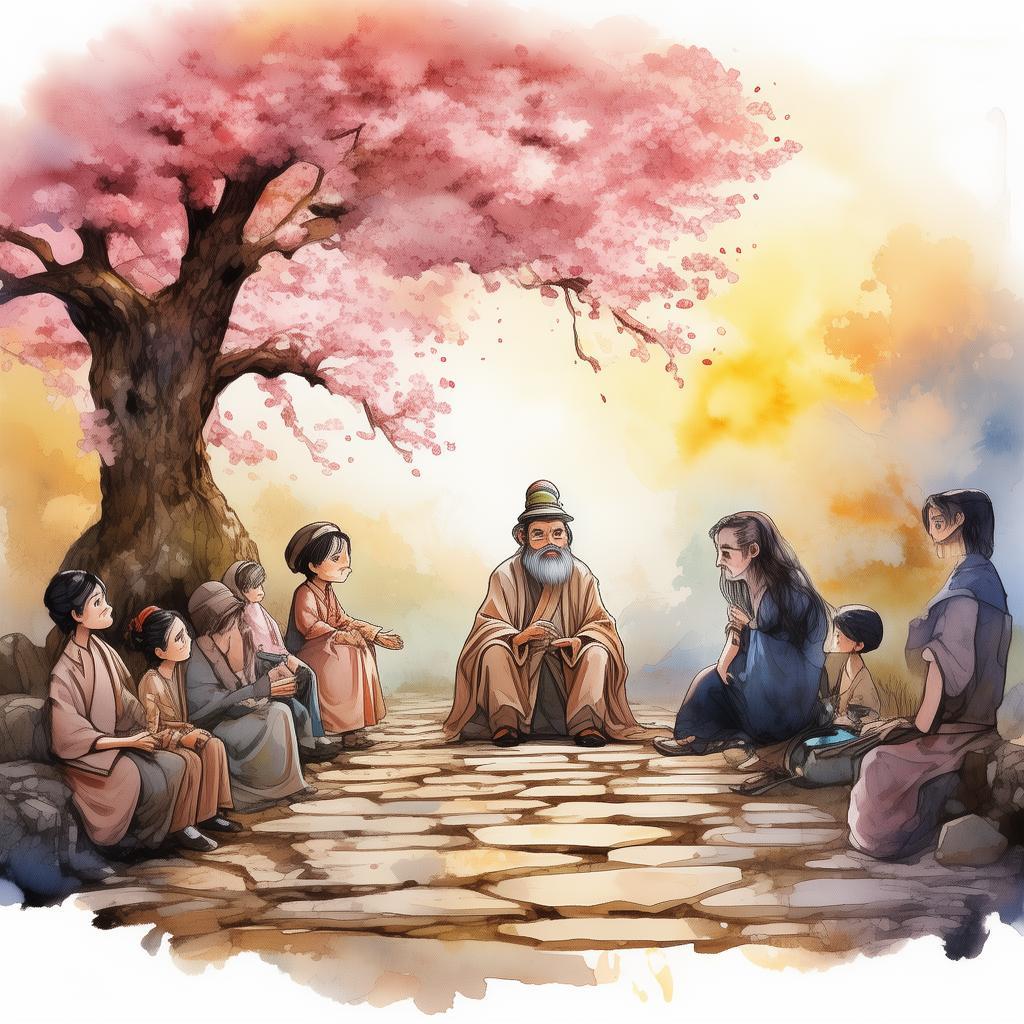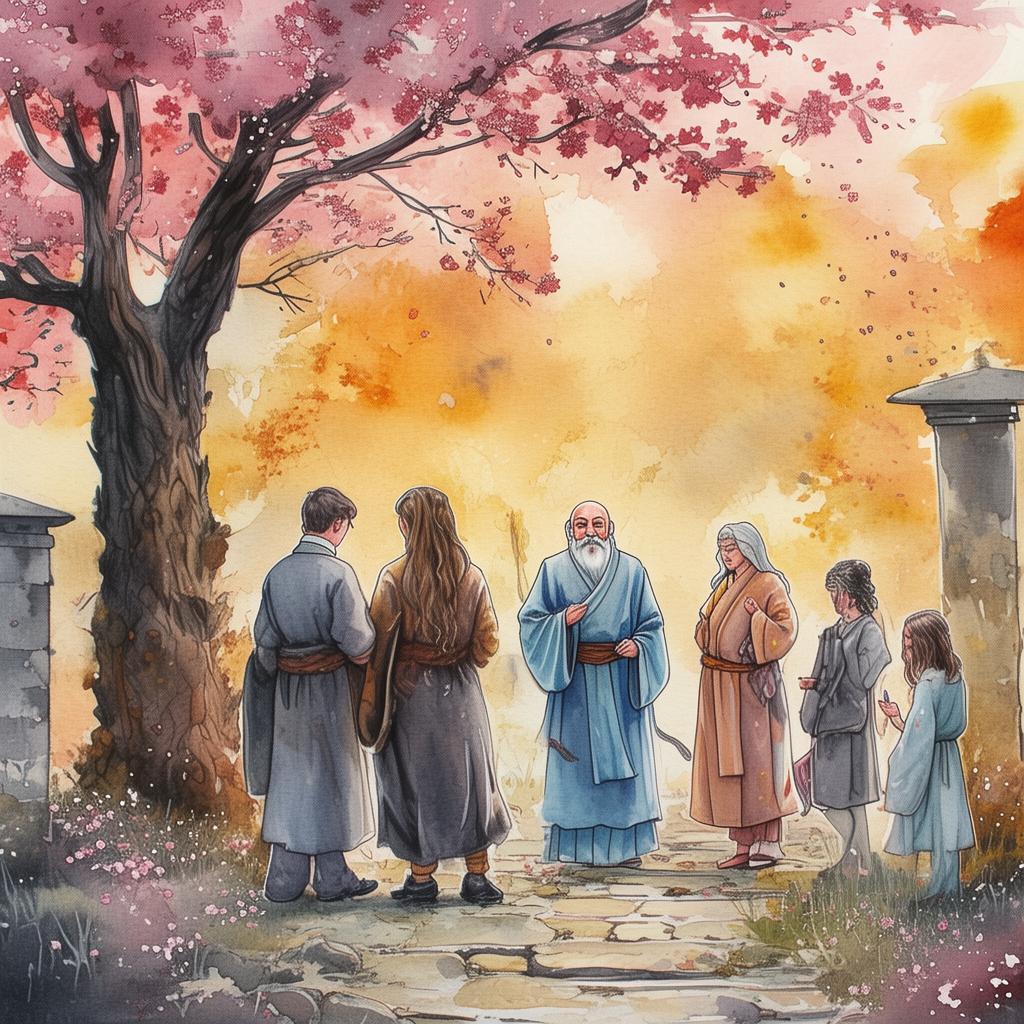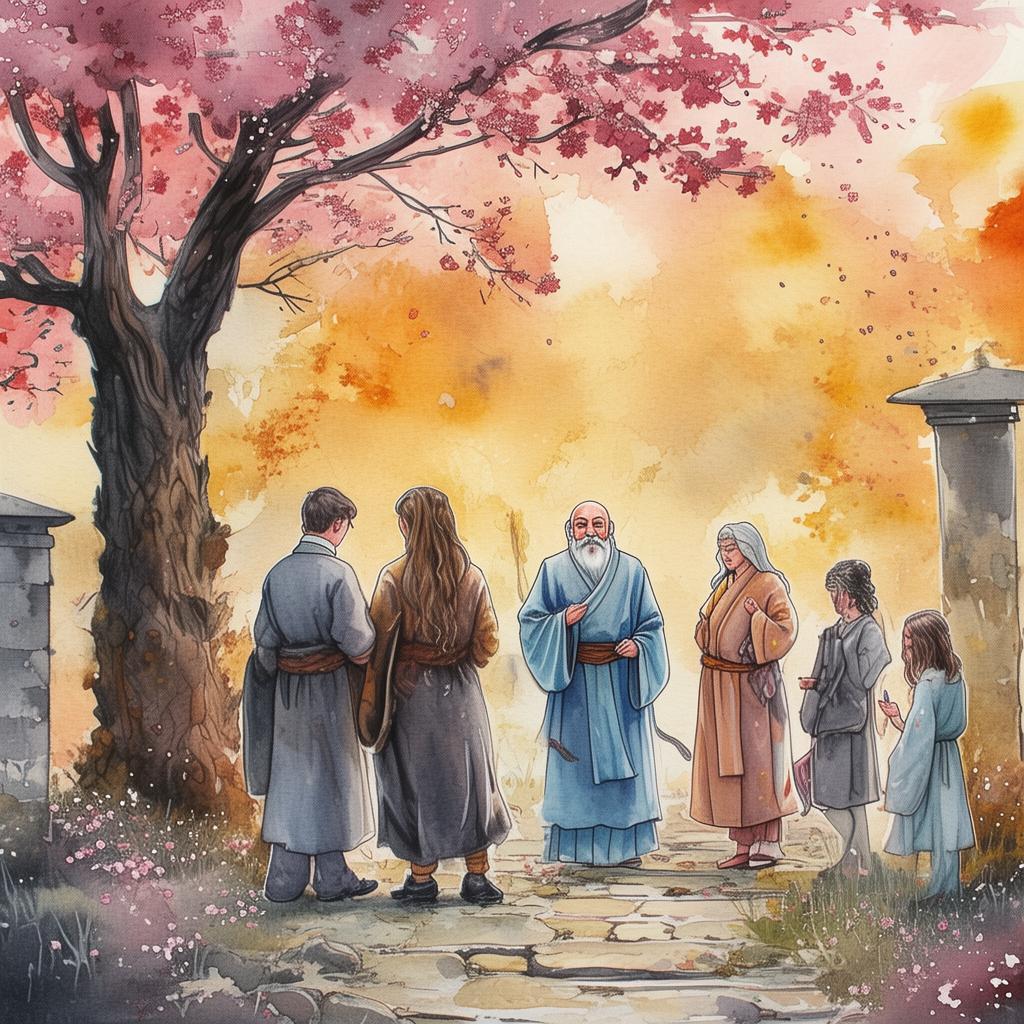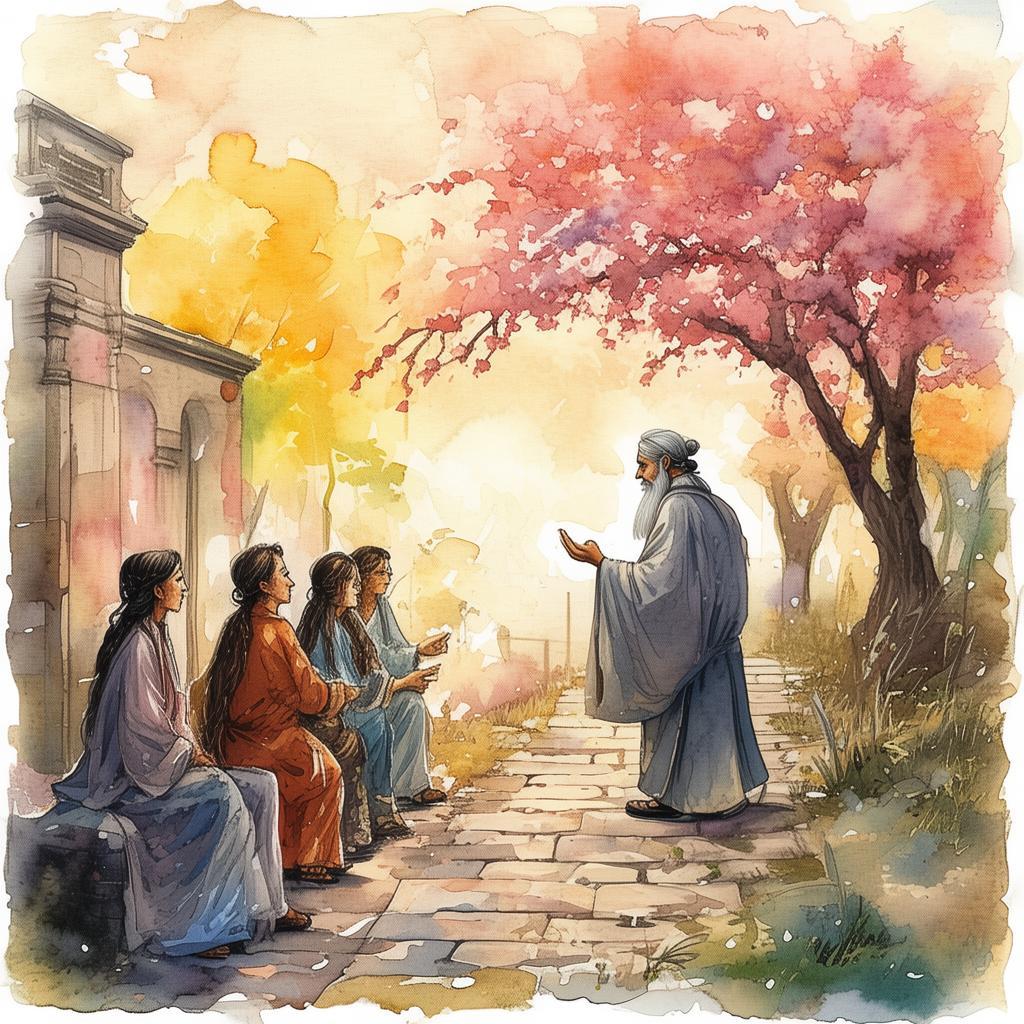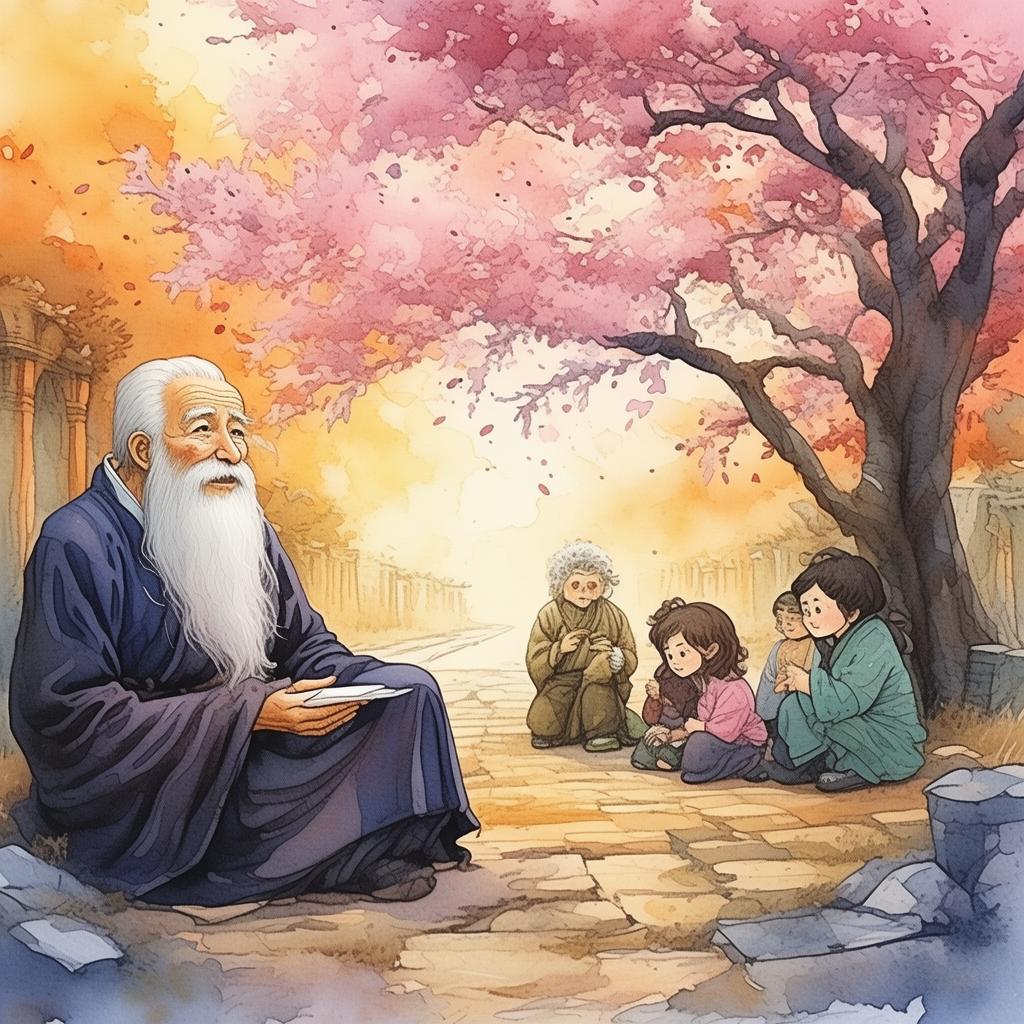The Footprint of Folly: A Tale of Paradox and Punishment
In the ancient village of Lingtang, nestled between rolling hills and a serene river, there lived a young man named Ming. Ming was known for his wit and charm, but beneath his playful exterior lay a heart full of folly. He was always the life of the party, the one who could turn any situation into a jest, but his jokes often had a sting to them.
One day, Ming's father, a wise and respected elder of the village, fell ill. The villagers, with their hearts heavy, gathered to offer their support. Ming, though he professed his concern, could not help but insert a pun into the solemn gathering, much to the chagrin of his family and the village elders.
The pun was a clever twist on the situation, but it was not taken well. Ming's father, weakened by illness, was deeply hurt by his son's joke. The elders, too, felt disrespected by the young man's attempt to lighten the mood with a pun at such a time.
The next morning, as the sun rose over Lingtang, Ming noticed a footprint on the ground. It was the footprint of a baby's foot, delicate and innocent. Ming, who was known for his love of wordplay, saw the footprint as a paradox, a symbol of innocence amidst the chaos of his own folly.
Curiosity piqued, Ming followed the footprint, which led him to the riverbank. There, he found his father, who had walked the distance to the river in the middle of the night. Ming's father had been reflecting on the footprint, a reminder of the purity of childhood and the innocence that Ming had forsaken with his joke.
Ming approached his father, who looked up with eyes that held a mix of sorrow and resolve. "Son," he said, "the footprint is a symbol of the innocence you once had. It is also a warning. Your folly may leave a mark on others, but it will also leave a mark on you."
Ming listened, his heart heavy. He realized that his jokes, while meant to entertain, had the power to wound. He had not considered the impact of his words on others, especially in times of distress.
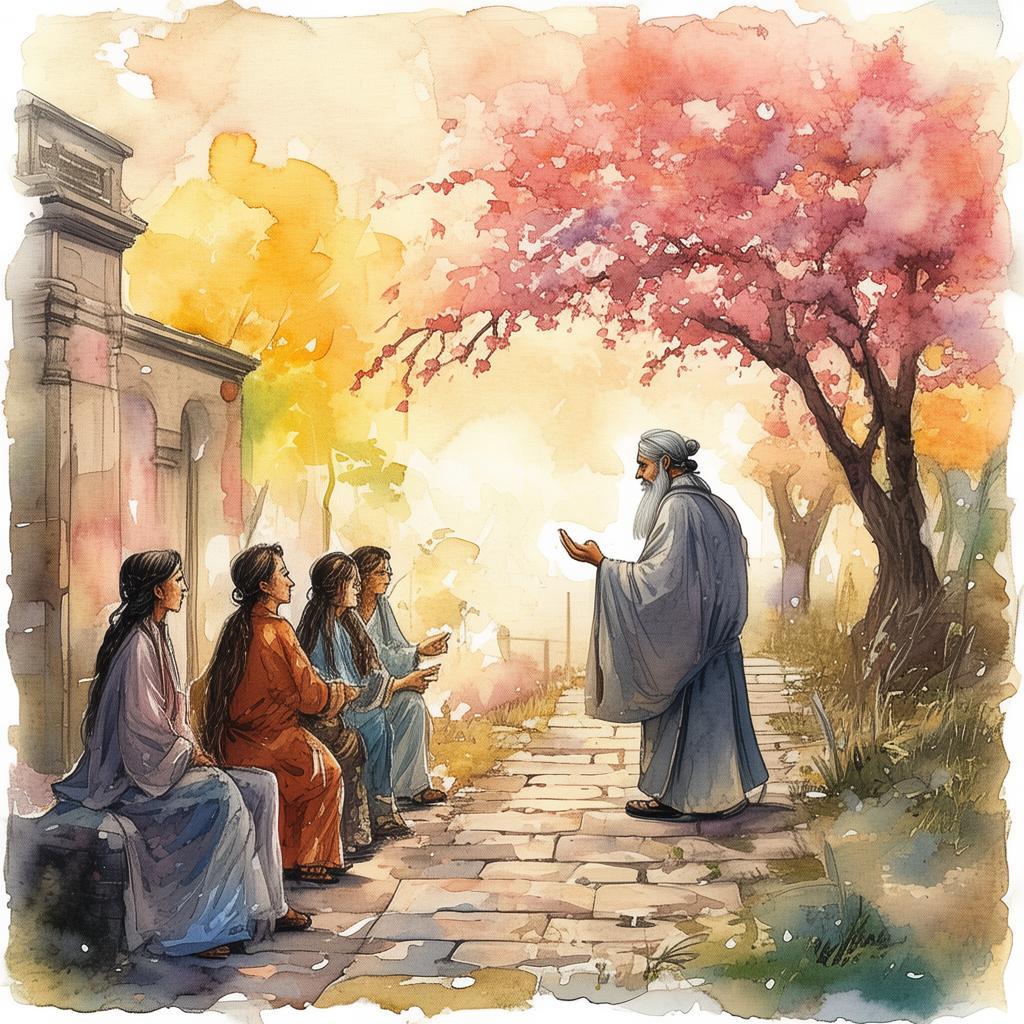
As days turned into weeks, Ming's father's health worsened. Ming, now deeply remorseful, spent every moment by his father's side, his heart full of regret. He realized that the footprint was not just a symbol of innocence, but also of the consequences of one's actions.
One evening, as the moon hung low in the sky, Ming's father took his last breath. Ming was by his side, holding his hand, whispering apologies. In that moment, Ming understood the full weight of his folly. The footprint of his father's foot was now indelibly etched in his memory, a reminder of the cost of his words.
The village mourned the loss of Ming's father, and Ming was deeply affected by the outpouring of grief. He realized that his father's death was not just a personal loss, but a loss to the entire community. Ming's heart ached with the weight of his actions, and he resolved to change.
From that day forward, Ming became a different man. He no longer sought to entertain at the expense of others. Instead, he sought to heal, to bring joy in ways that did not harm. He learned to listen, to understand, and to empathize.
Years passed, and Ming's footprint on the village was one of kindness and compassion. The footprint of folly had become a footprint of wisdom, a testament to the power of change and the impact of one's actions.
And so, the tale of Ming's footprint spread through the village, a story of paradox and punishment, of folly and forgiveness. It served as a reminder to all that the words we speak, the actions we take, and the footprints we leave behind are not just symbols of who we are, but also of who we aspire to be.
✨ Original Statement ✨
All articles published on this website (including but not limited to text, images, videos, and other content) are original or authorized for reposting and are protected by relevant laws. Without the explicit written permission of this website, no individual or organization may copy, modify, repost, or use the content for commercial purposes.
If you need to quote or cooperate, please contact this site for authorization. We reserve the right to pursue legal responsibility for any unauthorized use.
Hereby declared.

